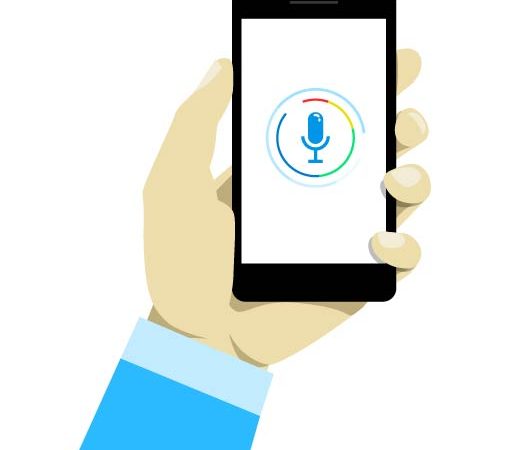Voice Search: The Content of Tomorrow is Now!
The other day some friends were raving over their Okay Google search home device. “Okay Google, give me dinner music.” They were quick to tell me how easy it was to check movie trivia, get store hours, find recipes and call relatives. “We can’t live without it.”
The Vocal Majority: More Queries for Siri
 In case no one’s told you, let me be the first: Search by voice is the wave of the future, surging in use among teens and adults alike. Google, Bing and other search engines report more and more of their activity now comes from mobile users asking questions of their phones.
In case no one’s told you, let me be the first: Search by voice is the wave of the future, surging in use among teens and adults alike. Google, Bing and other search engines report more and more of their activity now comes from mobile users asking questions of their phones.
Not only has the quality of voice search improved dramatically, but people have gotten over the newness hump and have no problem posing questions directly to their device on a daily basis. Even older users are choosing to partake in the technology of asking audio inquiries ranging from “Where’s the nearest dry cleaners?” to “How do I apply false eyelashes?”
This feature is changing the face of search behavior. The convenience, ease and safety of using a mobile device while moving, without having to stop and type, edit and avoid autocorrect make multitasking more doable and less dangerous to all concerned. The big question for small business owners is, “How do I optimize my content to account for the increase in voice search?” Hopefully, this blog will answer that serious query.
Types of Voice Searches
Customers using voice search are looking for specific answers quickly. They value speed, accuracy, the means to follow up and the ability to speak longer, more complex thoughts. The four major types of queries are:
- Local resources (find the nearest gas station)
- Fun and entertainment (where to get the best barbecue)
- Personal assistant (call mom)
- General information (what’s the weather in Tulsa?)
As with traditional search engine optimization, web content must contain the information in order for Google to find it. So you have to tailor content for voice search, but there is a different approach needed to create it.
Optimize Your Website for Google Voice Search
 Voice search is local-oriented. Obviously, businesses must keep their profiles and contact information up to date since this is what Google search by voice will pull for queries such as, “Where can I get the best crawfish in New Orleans?”
Voice search is local-oriented. Obviously, businesses must keep their profiles and contact information up to date since this is what Google search by voice will pull for queries such as, “Where can I get the best crawfish in New Orleans?”
For a seafood restaurant, this would mean including accurate opening hours in their profile, the precise location and map of the shop and website content including “best crawfish in New Orleans” or “Louisiana famous crawfish etouffee.”
Having your Google My Business listing claimed and up-to-date increases your chance of showing up when a voice search is done pertaining to your local business, location or category.
The Shift to Conversational Longtail Keywords
 Longtail Keywords Plus refers to the extended phrases used in conversational voice search. Keywords are now based on mimicking how real people talk and ask questions.
Longtail Keywords Plus refers to the extended phrases used in conversational voice search. Keywords are now based on mimicking how real people talk and ask questions.
For business owners, the challenge for an Okay Google search strategy is twofold. First, identify the kinds of questions the target audience is most likely to pose to a digital voice assistant; then create content that satisfies those specific queries. In the case of my friends asking for dinner music, someone had to call the song “dinner music.”
“Eiffel tower architect” is minimal and succinct when typed whereas “Who was the architect who built the Eiffel Tower?” is long and loopy when spoken. Website content that seeks to be optimized for voice SEO needs to reflect this key difference.
It’s a Natural!
![iwc - voice search - it's a natural [Converted]](https://iwebcontent.com/site/wp-content/uploads/2017/06/iwc-voice-search-its-a-natural-Converted-300x300.jpg) Using language that follows the casual tone of natural conversation on your website assets, FAQs and blog posts will capture more voice searches. The short, clipped keywords of text search will give way to long-tail phrases and even whole sentences used when speaking to digital assistants. Your keyword strategy must now be more conversational in nature and sound the way real people talk and especially how they ask questions.
Using language that follows the casual tone of natural conversation on your website assets, FAQs and blog posts will capture more voice searches. The short, clipped keywords of text search will give way to long-tail phrases and even whole sentences used when speaking to digital assistants. Your keyword strategy must now be more conversational in nature and sound the way real people talk and especially how they ask questions.
A voice query such as, “Find a car wash that’s open near me,” with the user’s location enabled, can return everything needed but the cheerleader sponsored car wash at the High School. Business owners will, therefore, want to position their online presence for stream-of-conscious but specific need-now queries. This requires extensive research into the kind of questions your target audience most frequently asks. You can then take each of those questions and develop answers addressed in future blog posts. As long as your content speaks to customer queries in an intelligent, helpful, genuine manner, Google will notice and rank the site accordingly.
The Customer is Always Right Talking…Listen
![iwc- voice search - listen to customers [Converted]](https://iwebcontent.com/site/wp-content/uploads/2017/06/iwc-voice-search-listen-to-customers-Converted-300x220.jpg) When customers call, what do they want to know? Make a list of the questions and statements. It’s marketing manna! Document and record the exact phrasing they use when conversing with customer service representatives. For example:
When customers call, what do they want to know? Make a list of the questions and statements. It’s marketing manna! Document and record the exact phrasing they use when conversing with customer service representatives. For example:
• “Do you carry extra-tall men’s button-down shirts in 100% cotton?”
• “Does your restaurant have booster seats for children under one-year-old?”
• “Will I be allowed to take my folding stroller on the airplane?”
• “Is there someone in your store who can tell me what my silverware is worth?”
Once you know the question, you can create content pages for each of the answers. In the case of the men’s shirts, you could add separate pages to the site for each one of these topics: extended sizes, men’s button-down and pure cotton shirts.
Analyze Your Research
![iwc - voice search - analytics [Converted]](https://iwebcontent.com/site/wp-content/uploads/2017/06/iwc-voice-search-analytics-Converted-300x215.jpg) There are analytics that can help you research the kind of questions your target audience most frequently poses to digital assistants. While people can talk at length when speaking to a digital assistant, they usually get right to the point because they know intuitively that specific questions lead to specific answers.
There are analytics that can help you research the kind of questions your target audience most frequently poses to digital assistants. While people can talk at length when speaking to a digital assistant, they usually get right to the point because they know intuitively that specific questions lead to specific answers.
A query such as “Find Mexican grocers in my neighborhood,” with the user’s location enabled, can return instant pinpointed results. Business owners must optimize their websites and content for intuitive but specific queries.
Just when your website was perfectly optimized for search on desktop computers, along came mobile. You mastered mobile search. Now comes the challenge of producing content for voice search. It just so happens we’ve made friends with Siri, Google Now and Cortana. Call us if you’re ready to listen to some cutting-edge advice about voice search optimization.





